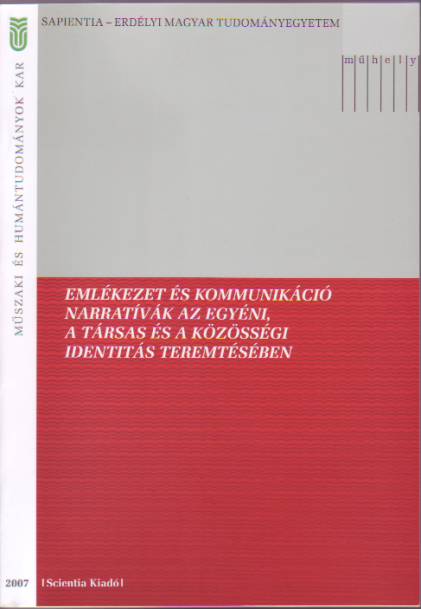ÖNREFLEXIÓ ÉS ÉLETTÖRTÉNET SZÉCHENYI MŰVEIBEN
Self-reflextion and life-story in Széchenyi’s works
Author(s): Rita Pletl
Subject(s): Anthropology, Social Sciences, Language and Literature Studies, Studies of Literature
Published by: Scientia Kiadó
Keywords: self-reflextion; Széchenyi;self; identity
Summary/Abstract: In Széchenyi’s definition, self-reflection is the intellectual effort by which the self, in a process of self-interpretation and self-correction, creates its particular identity. The practice of self-interpretation, thus, is the base of the interpretation of being, because this is how one can form a picture about himself and the world. This way, he recreates himself and the world, narratively. The series of symbols that follow through his walk of life, present us the formation of Széchenyi’s ideas. The differences in their meanings show the differences in the formation of his worldview. In my paper I follow the formation of a motive of a story of remorse, on the base of the journals and their sequence, the confessions from Döbling.
Book: EMLÉKEZET ÉS KOMMUNIKÁCIÓ
- Page Range: 191-200
- Page Count: 10
- Publication Year: 2007
- Language: Hungarian
- Content File-PDF

